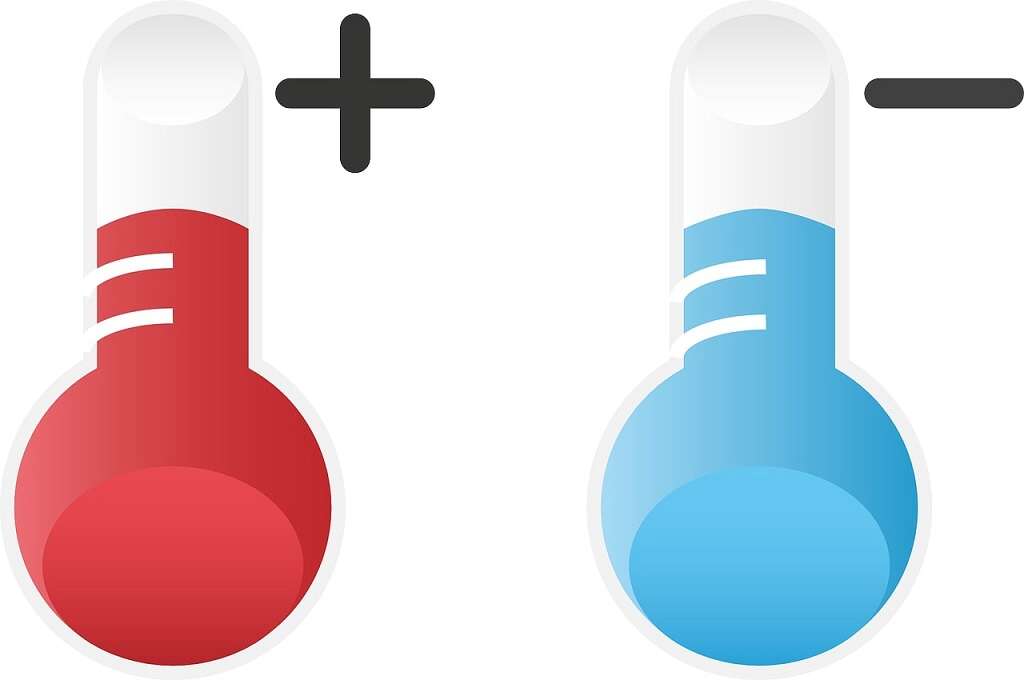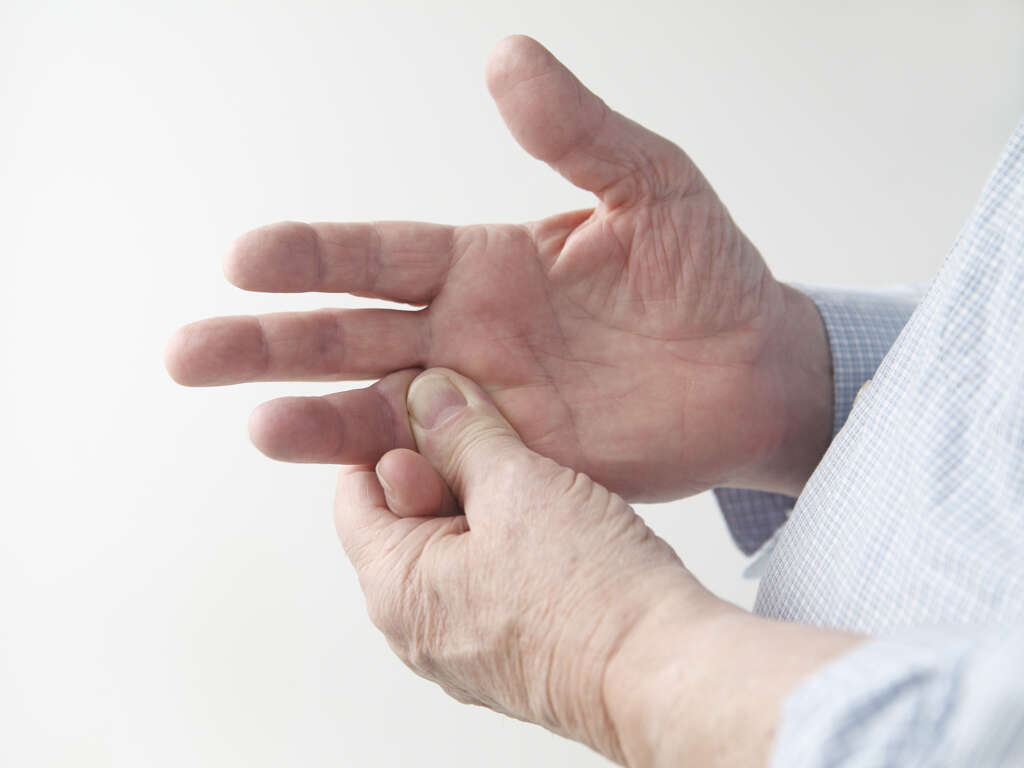10 Paresthesia Symptoms
 Article Sources
Article Sources
- 1. ’Paresthesia Information Page.’ National Institute of Neurological Disorders and Stroke, U.S. Department of Health and Human Services, www.ninds.nih.gov/Disorders/All-Disorders/Paresthesia-Information-Page#disorders-r2
- 2. ’Numbness.’ Mayo Clinic, Mayo Foundation for Medical Education and Research, 22 June 2021, https://www.mayoclinic.org/symptoms/numbness/basics/definition/sym-20050938
- 3. 'Exclusive Content.' News, www.msfocusmagazine.org/Magazine/Magazine-Items/13-Points-about-Paresthesia
- 4. 'Understanding the ‘Pins and Needles’ Feeling.' Understanding the 'Pins and Needles' Feeling - Health Encyclopedia - University of Rochester Medical Center, www.urmc.rochester.edu/encyclopedia/content.aspx?ContentTypeID=1&ContentID=58
Paresthesia is a condition that causes abnormal sensations in the body, including tingling, burning or numbness. The condition is particularly prevalent in the body's extremities, such as the arms, legs, hands or feet.
Depending on the cause, the symptoms can be temporary, constant or intermittent. Paresthesia is usually temporary, lasting only a few minutes. Some people experience chronic paresthesia, which can be a sign of a more severe condition such as a stroke, diabetes or multiple sclerosis. If the symptoms of paresthesia persist longer than a few minutes, it's important to seek medical attention.1’Paresthesia Information Page.’ National Institute of Neurological Disorders and Stroke, U.S. Department of Health and Human Services, www.ninds.nih.gov/Disorders/All-Disorders/Paresthesia-Information-Page#disorders-r2
Tingling Sensation
Tingling is the most obvious symptom of paresthesia. It's an unusual sensation described as feeling as if something is crawling on or under the skin. Tingling is commonly referred to as pins and needles. It's the same sensation a person gets when they sit on their leg for an extended time.
This symptom is common and usually not something to worry about. However, because paresthesia can be connected to nerve damage, failing to seek medical attention promptly can lead to permanent damage. So, people experiencing this symptom for longer than expected should speak to their doctor.1’Paresthesia Information Page.’ National Institute of Neurological Disorders and Stroke, U.S. Department of Health and Human Services, www.ninds.nih.gov/Disorders/All-Disorders/Paresthesia-Information-Page#disorders-r2

Aching or Burning Pain
Paresthesia can cause a person's extremities to feel aching or burning pain. Achiness is a continuous and localized pain at mild or moderate levels. It's generally described as dull discomfort, similar to that of sore muscles. Burning pain is distinct from dull or achy pain in that it feels like the skin is on fire. This type of pain is generally associated with nerve problems.
Although these sensations can be a symptom of paresthesia, the condition is generally painless.

Numbness
Numbness in the body's extremities, most frequently in the legs and feet, is a common symptom of paresthesia. Numbness describes the loss of the ability to sense or feel pressure in a part of the body. This loss of feeling can be either complete or partial.
Damage, irritation or compression of nerves cause the parts of the body to feel numb. People can prevent temporary numbness by moving out of awkward positions. Resolving numbness caused by chronic paresthesia usually requires medical attention.2’Numbness.’ Mayo Clinic, Mayo Foundation for Medical Education and Research, 22 June 2021, https://www.mayoclinic.org/symptoms/numbness/basics/definition/sym-20050938

Sleeping Sensation
People with paresthesia usually describe feeling like the affected area has fallen asleep. It's a sensation similar to what's experienced when a person sits on their leg or rests on their arm for too long.
If this sensation is caused by sitting in an awkward position for an extended period, it's usually only temporary paresthesia and generally resolves when the person changes their position. If the feeling doesn't go away, it's crucial to seek medical attention as it may be linked to nerve damage.

Prickly or Itchy Feeling
Prickling or itching commonly arises for no apparent reason when people have paresthesia. The prickling sensation has been compared to the feeling of electric shocks on the skin. People may feel the need to scratch the affected area to relieve the tickling sensation.
Although the symptom is usually transient, it may last for a long time. If the prickling or itching sensation doesn't go away, medical attention should be sought.

Hot or Cold Skin
Depending on the part of the body affected by paresthesia, the condition may cause limbs to feel either hot or cold. Although this symptom usually only occurs in the affected area, it may radiate outward. These sensations may or may not cause discomfort.
Temperature extremes can aggravate paresthesia. So, if the sensation affects daily life, ensuring limbs are warmed up if they're cold or cooled down if they're hot can alleviate some discomfort.3‘Exclusive Content.’ News, www.msfocusmagazine.org/Magazine/Magazine-Items/13-Points-about-Paresthesia

Stabbing Pain
Paresthesia is usually a painless condition. However, people with chronic paresthesia may experience stabbing pain in their arms, legs, feet or hands. Stabbing pain is generally described as a sharp pain occurring suddenly and intensely.
Sharp, acute pains can be uncomfortable, especially over long periods of time. The discomfort can radiate beyond the affected limb and may affect walking. If this symptom persists, it's important to seek advice from a health care professional.

Difficulty Walking
Chronic paresthesia in the legs or feet can make it difficult to walk. When paresthesia causes the limbs to feel numb, they lose the ability to feel pressure. This can cause clumsiness or a lack of coordination in the legs. Walking can also be impaired if the condition creates a stabbing pain in the legs or feet that causes discomfort when standing.
If the paresthesia becomes so severe that it impairs walking, medical attention should be sought.

Weak Muscles
The combination of all of these sensations can leave extremities feeling generally weak. Muscle weakness feels like decreased strength in the muscles. It may occur in one muscle, a group of muscles or all muscles in the affected limb. Depending on the cause, the weakness may be temporary or continuous.
Sudden muscle weakness on one side of the body can be a sign of a stroke. People experiencing this symptom should seek medical attention immediately.4‘Understanding the ‘Pins and Needles’ Feeling.’ Understanding the ‘Pins and Needles’ Feeling - Health Encyclopedia - University of Rochester Medical Center, www.urmc.rochester.edu/encyclopedia/content.aspx?ContentTypeID=1&ContentID=58

Muscle Spasms
Muscle spasms, also known as muscle cramps, can be a symptom of paresthesia. A muscle spasm is an involuntary repetitive movement or contraction of a muscle that is usually quite painful.
Muscle spasms can be either brief or long-lasting. Gently stretching or massaging the affected limb may help relieve the discomfort of a muscle cramp. If the spasm persists, it may be a sign of chronic paresthesia, and medical attention should be sought.











